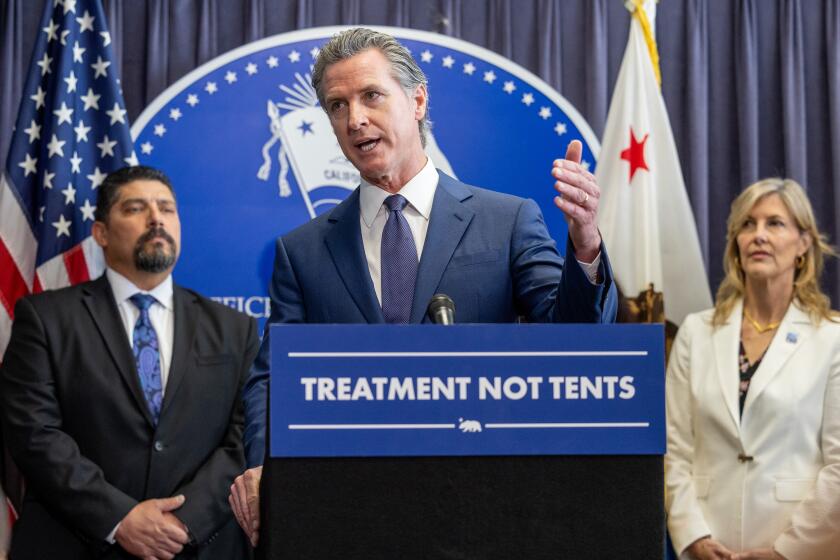D.C. shut out again
This was to be the year that one of the great injustices of American democracy was to be redressed: the lack of voting representation in Congress for 600,000 residents of the District of Columbia. Instead, voting rights for D.C. fell victim to the inordinate influence of the gun lobby and a failure of nerve on the part of the House Democratic leadership.
On the eve of a vote last week to create a seat for the district in the House, Democratic leaders pulled the bill from consideration lest it be attached to legislation that would nullify restrictions on guns established by the district government. They made the right choice in the end, and it had the reluctant support of voting rights advocates, who concluded that the guns bill would involve intolerable interference with the district’s authority. But that strategic retreat might not have been necessary if the leadership hadn’t agreed initially to combine separate votes on voting rights and guns in a single bill. With a 77-seat majority, it should have been able to secure a standalone vote on D.C. voting rights.
Although advocates of voting rights promise to persevere, the immediate outlook is grim. Not only is a midterm election beckoning, the passage of time has removed an incentive in the bill for Republicans to support it: a temporary extra seat for Republican-leaning Utah to balance the permanent seat for Democratic D.C. Utah is likely to pick up another seat anyway as the result of this year’s census.
It’s easy amid this parliamentary maneuvering to lose sight of the simplicity of this issue. It’s outrageous that residents of the district, who are able to vote in presidential elections, have no vote even in the “people’s house” of Congress (let alone in the Senate, where only states are represented).
Even as he sidelined the D.C. voting bill, House Majority Leader Steny H. Hoyer (D-Md.) said the lack of representation for the district was a “blight on democracy.” Strong words, but they need to be accompanied by stronger action in Congress. If taxation without representation was sufficient reason for a revolution, it certainly justifies approval of a single piece of legislation.
More to Read
Get the L.A. Times Politics newsletter
Deeply reported insights into legislation, politics and policy from Sacramento, Washington and beyond. In your inbox three times per week.
You may occasionally receive promotional content from the Los Angeles Times.






